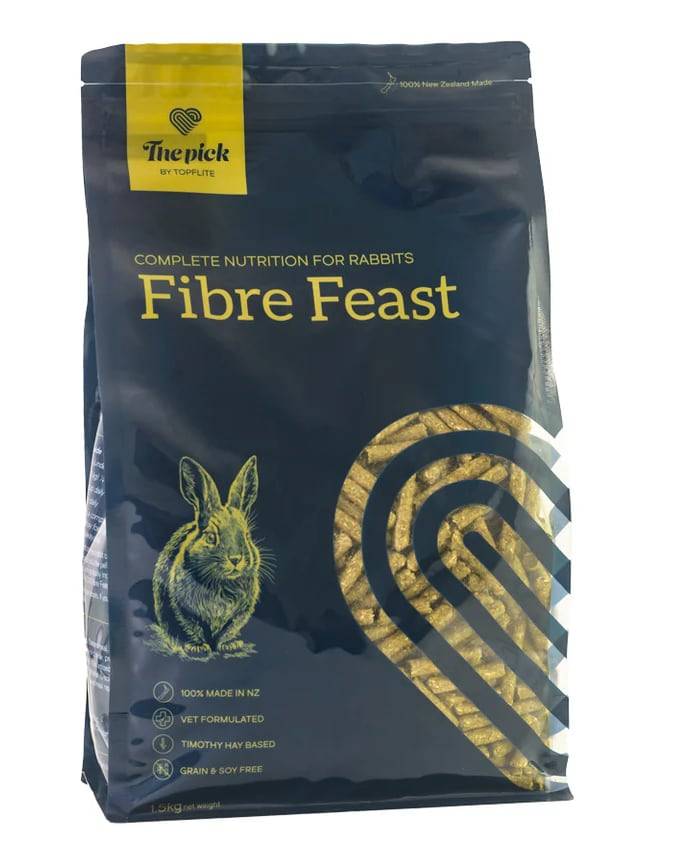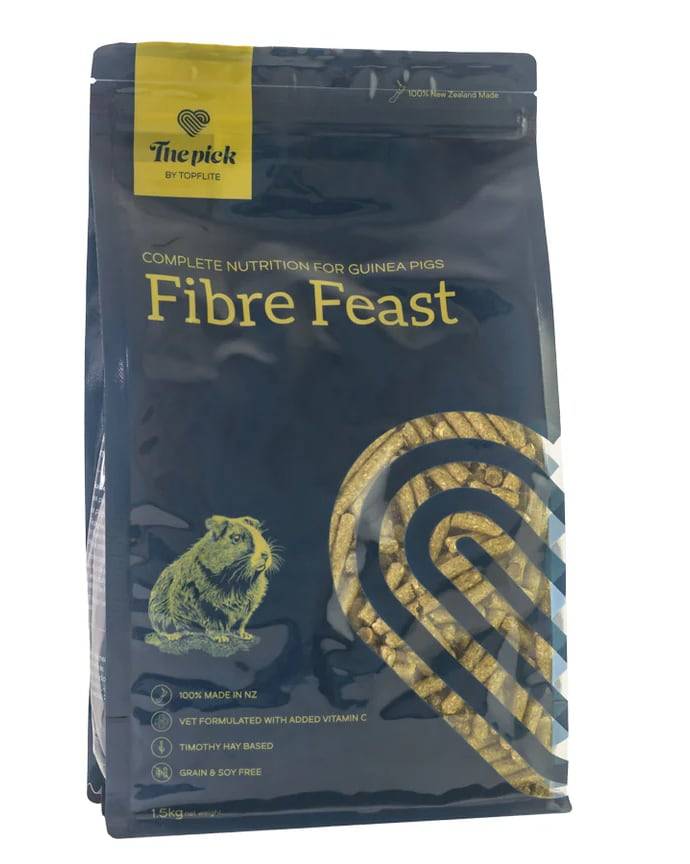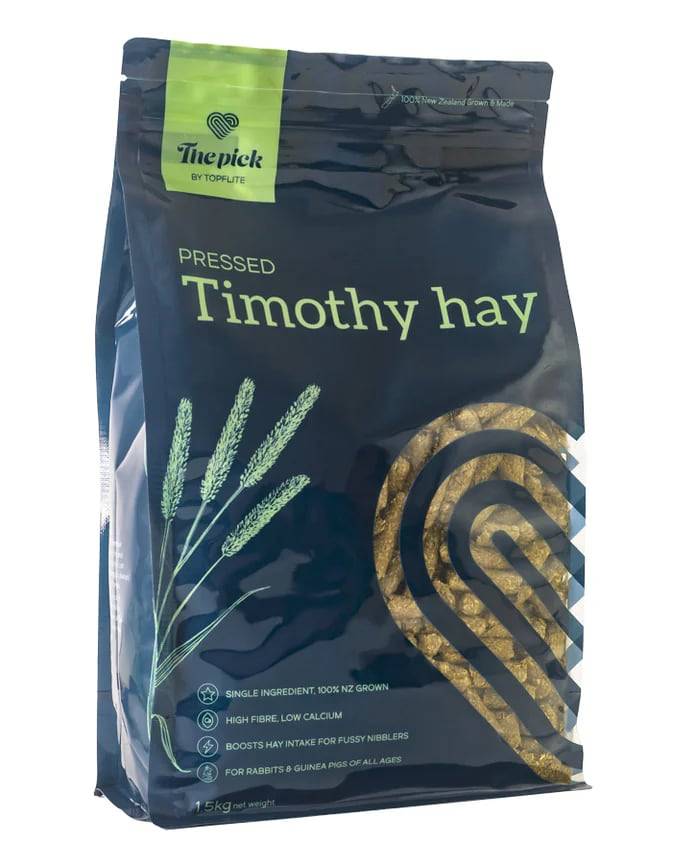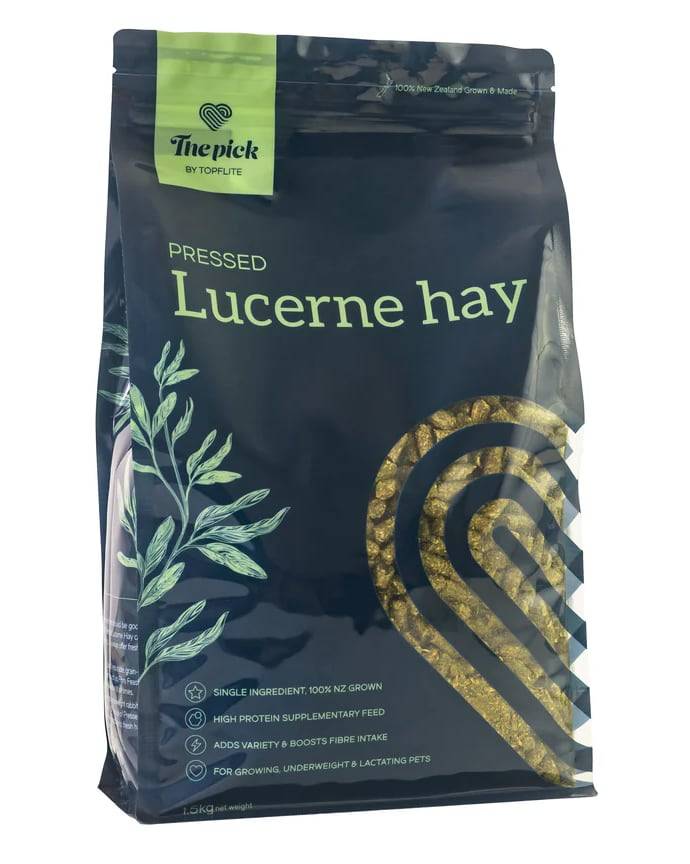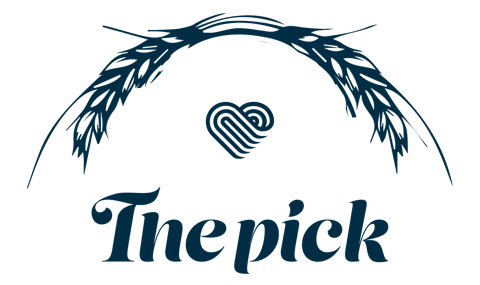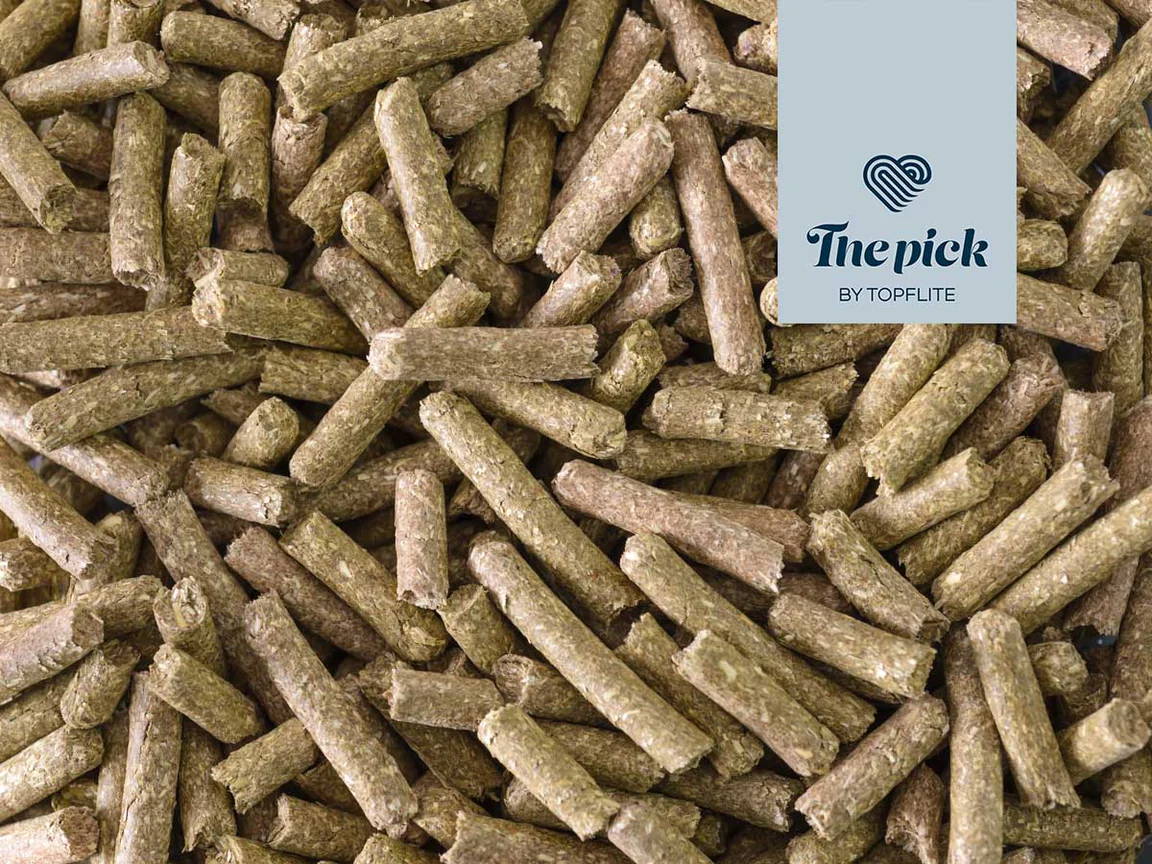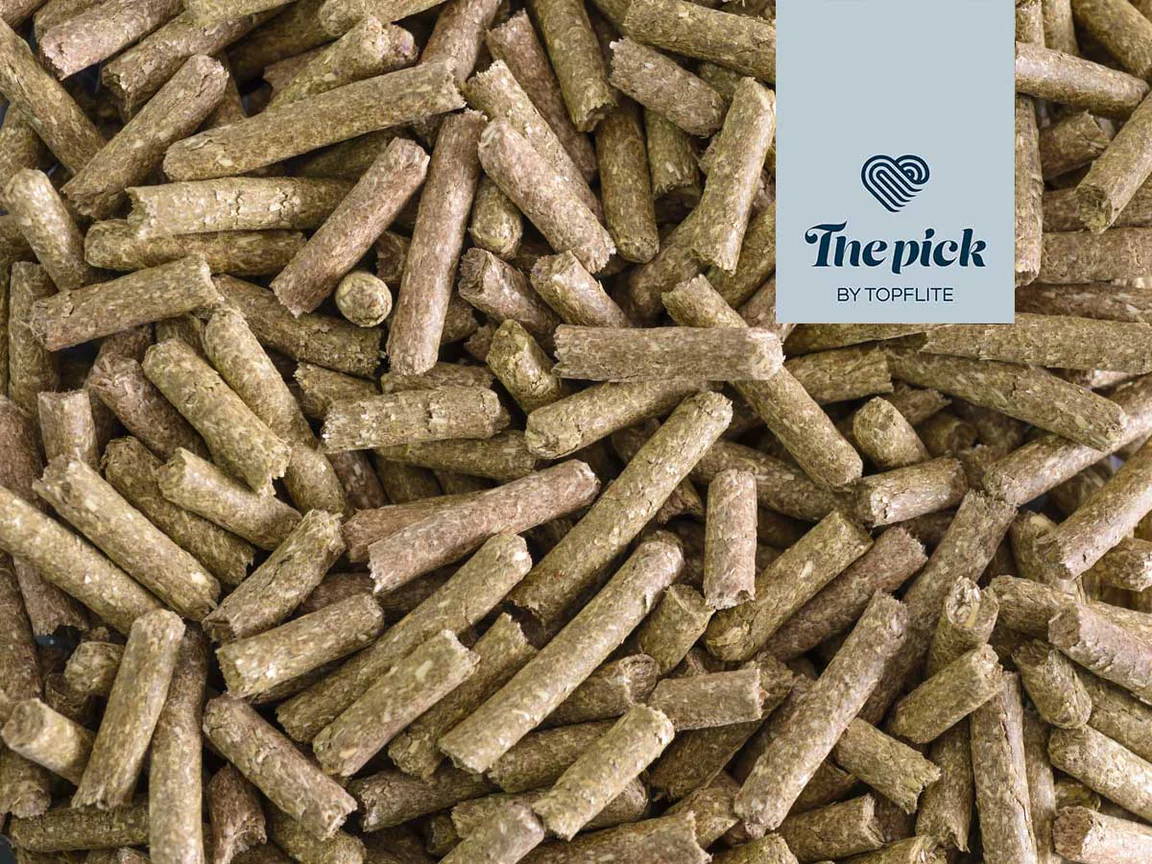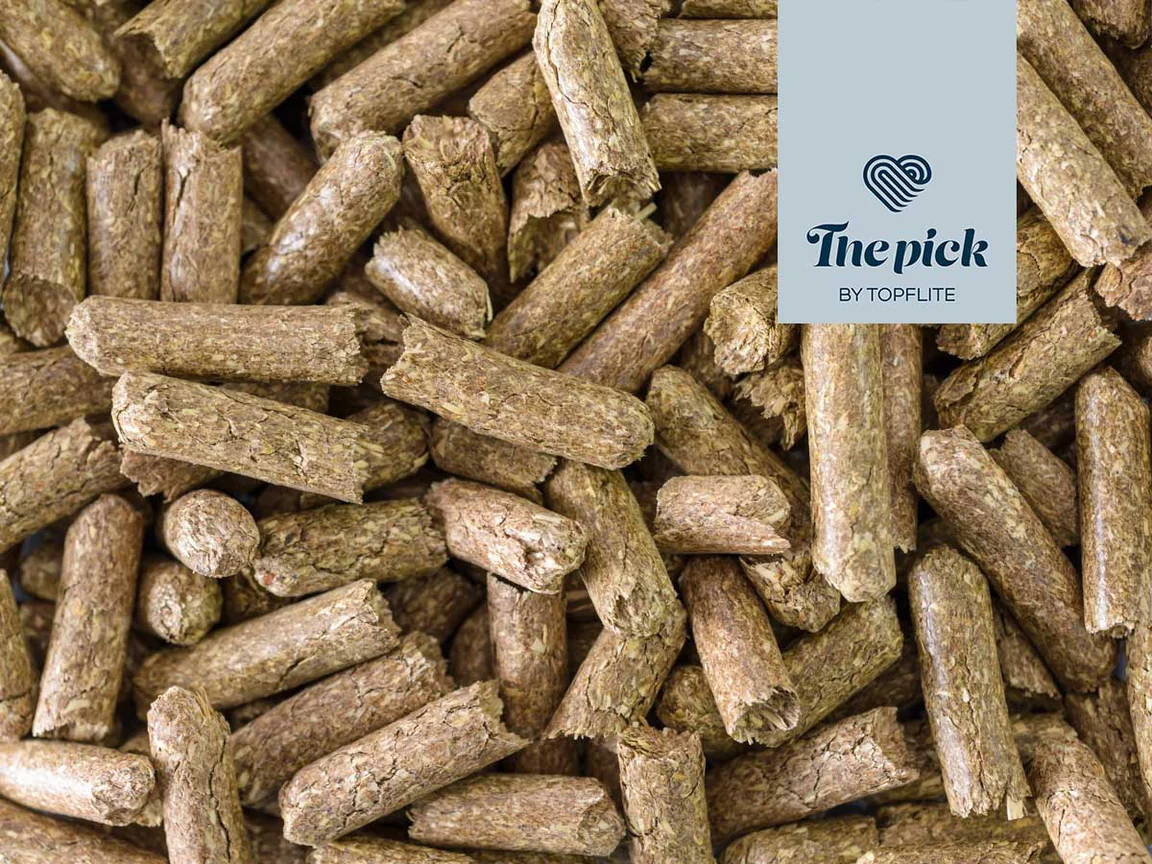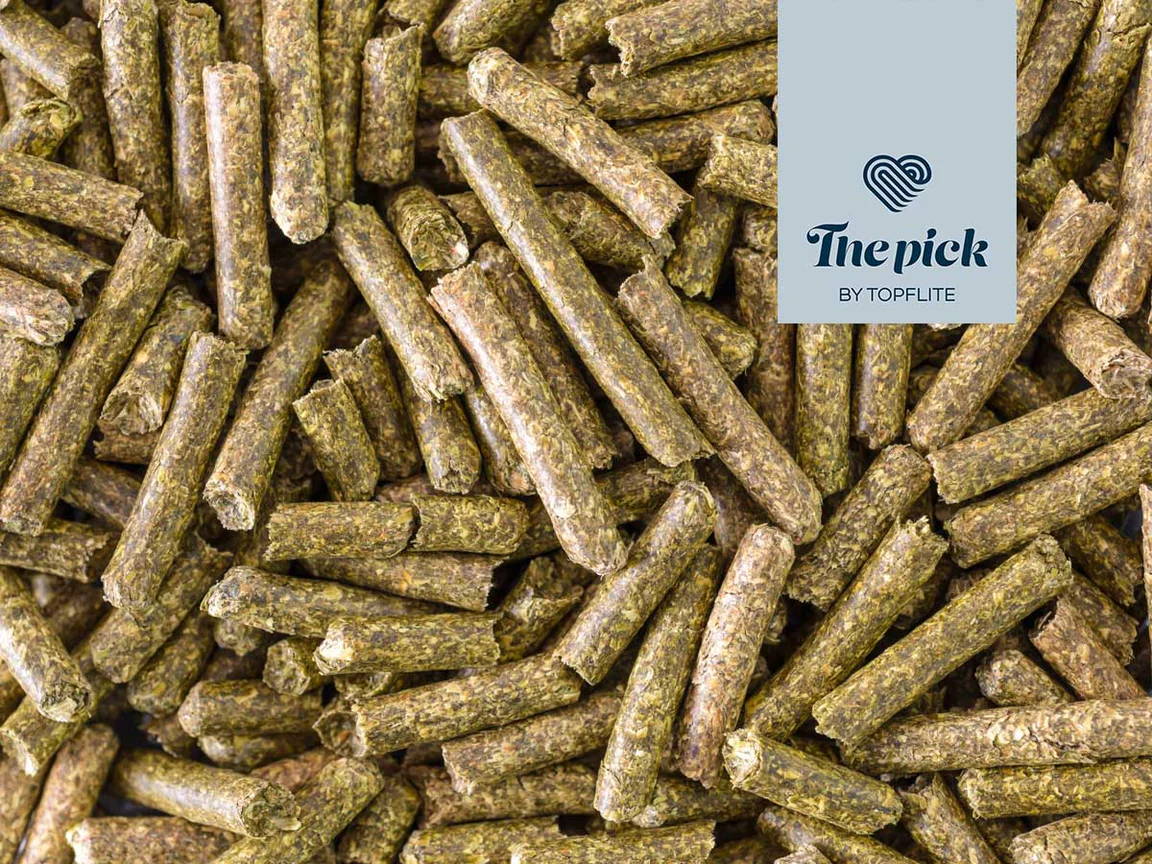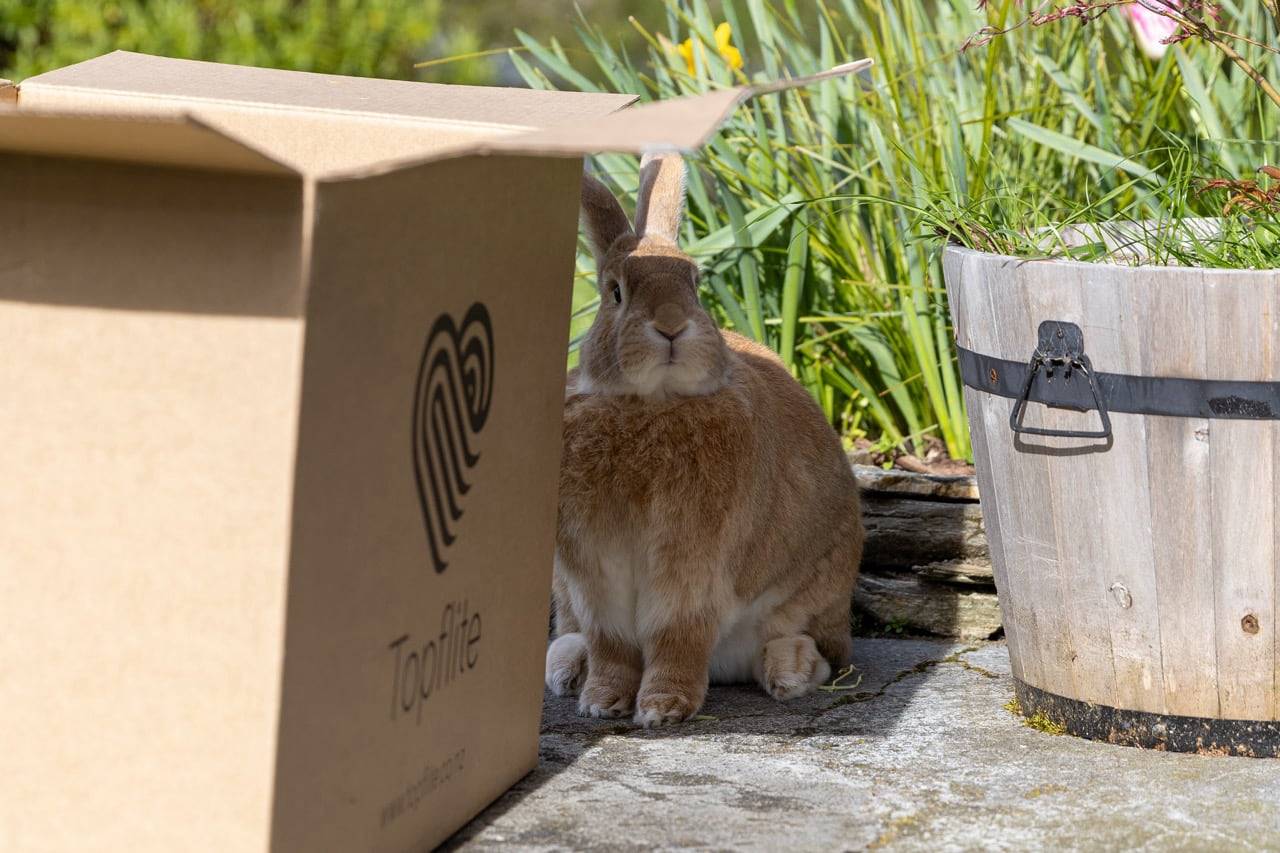Hay is important for three main reasons: digestion, dental wear and behaviour. Firstly, their specialised gut is designed to process lots of fibre. Secondly, a rabbits’ teeth grow constantly throughout their lives and without chewing regularly on fibrous stalks of hay, they become overgrown. Lastly, rabbits just want to chew! If there isn’t toothsome hay to nibble on, they may set their chompers on household items – electrical cables or furniture, for example.
New Zealand grown nutrition for rabbits and guinea pigs
What separates The Pick?
It’s the origin, first of all. Grown in the rich soils of Otago, only the best quality plant fibre makes the cut. Then, after a perfectly timed harvest to capture the natural goodness at its peak, the hay is cured and compressed into exceptional wholefood nutrition for rabbits and guinea pigs.
The harvest’s best, compressed.
Fibre Feast for Rabbits
Looking for a complete, grain-free daily feed for rabbits? Fibre Feast is your answer.
Pressed Timothy hay is balanced with lucerne, peas and flaxseed to guarantee the correct ratio of fibre, healthy fats and quality proteins each day.
Fibre Feast for Guinea Pigs
With a complex gut system and unique nutritional requirements, guinea pigs deserve a feed of their own.
This complete diet is based on Timothy hay and meets the specific daily fibre and protein requirements for optimal piggy health.
Pressed hays
Pressed Timothy Hay
These unique pellets have just one simple, nutritious and wholly delicious ingredient: Timothy hay. Locally grown hay is cured and cold-pressed, creating a clean and easy way to feed quality fibre to rabbits and guinea pigs.
Pressed Lucerne Hay
A legume hay, Pressed Lucerne has a high protein content to strengthen small fibrevores when their bodies are working hard. NZ grown lucerne (also known as alfalfa) is cured and cold-pressed for clean and easy fibre consumption.

The Pick puts fibre first
With sensitive and complex digestive systems, grain isn’t the best choice for rabbits and guinea pig feed. Rather, a fibre-forward diet is the key to optimal health.
Because The Pick is crafted from New Zealand hay with no fillers, additives or preservatives, it helps to increase the amount of quality plant fibre in your pet’s diet.
Frequently asked questions
Why do rabbits need to eat hay?
Why should rabbits and guinea pigs avoid grain?
While they often pick them first out of their feed, grains are high in calories and low in the fibre they need. The digestive systems of fibrevores are not geared up to process grains properly. A rabbit or guinea pig that eats a lot of grain is likely to become overweight and will often have a shorter lifespan.
How do I get more fibre into my rabbit or guinea pig’s diet?
A rabbit or guinea pig’s diet should consist of about 85% plant fibre. A good rule of thumb is to offer an amount of fresh, good quality hay that’s about equal to their body size each day. Adding Pressed Timothy Hay or Fibre Feast is a good way to increase the fibre intake of pets who are used to pelletised feed, or who avoid fresh hay.
What if my rabbit won’t eat hay?
Rabbits will sometimes avoid hay if they have too many other options. Try restricting the amount of greens and pellets you feed them. Also make sure you’re offering good quality, fresh hay – rabbits are natural browsers so try different varieties to keep interest high. You might also try mixing some hay with their favourite greens, like dandelion stalks and herbs. For the steadfast hay refuser, try Fibre Feast for Rabbits or Pressed Timothy Hay.
My rabbit is a fussy eater. How do I switch out my rabbit’s old pellets for the healthier stuff?
Introduce new food gradually, both to allow your rabbit to get used to the taste and to give their gut a chance to adjust. Begin by replacing around 10% of their usual food with the new, healthier alternative. Increase this by a little each day. Your rabbit may turn their sniffy little nose up to the new food but should eventually come around. Patience is key here.
Can guinea pigs eat rabbit pellets?
Guinea pigs need to consume vitamin C daily, while rabbits can synthesise their own. They also require a little more protein than rabbits. For this reason, rabbit-specific pellets alone will not usually meet all their dietary needs. Fibre Feast for Guinea Pigs is vet-formulated to give them everything they need.
How long does a rabbit live for?
Provided they are healthy and well looked after, domestic rabbits should live between 8 and 12 years. However, they have high exercise and dietary requirements, which can be difficult to balance in the home, meaning that unfortunately many domestic rabbits lead much shorter lives.
While your fluffy cottontails and popcorning piggies may look happy enough grazing on grass and snacking on veggie scraps, these ‘pocket pets’ need access to at least their body size in fresh hay every day in order to meet their dietary requirements for fibre.
It takes more than a fresh patch of grass to keep your rabbit in tip-top shape. A large percentage of rabbit health problems are caused by inadequate nutrition and poor diet. Here are a few tips every rabbit owner should know about keeping rabbits healthy and avoiding a trip to the vet.
Inspired by the boxes for our compressed Timothy Hay, which can be repurposed following the printed template to make a fun hidey, we’ve found the best and cutest ideas for keeping your rabbits and guinea pigs entertained.


